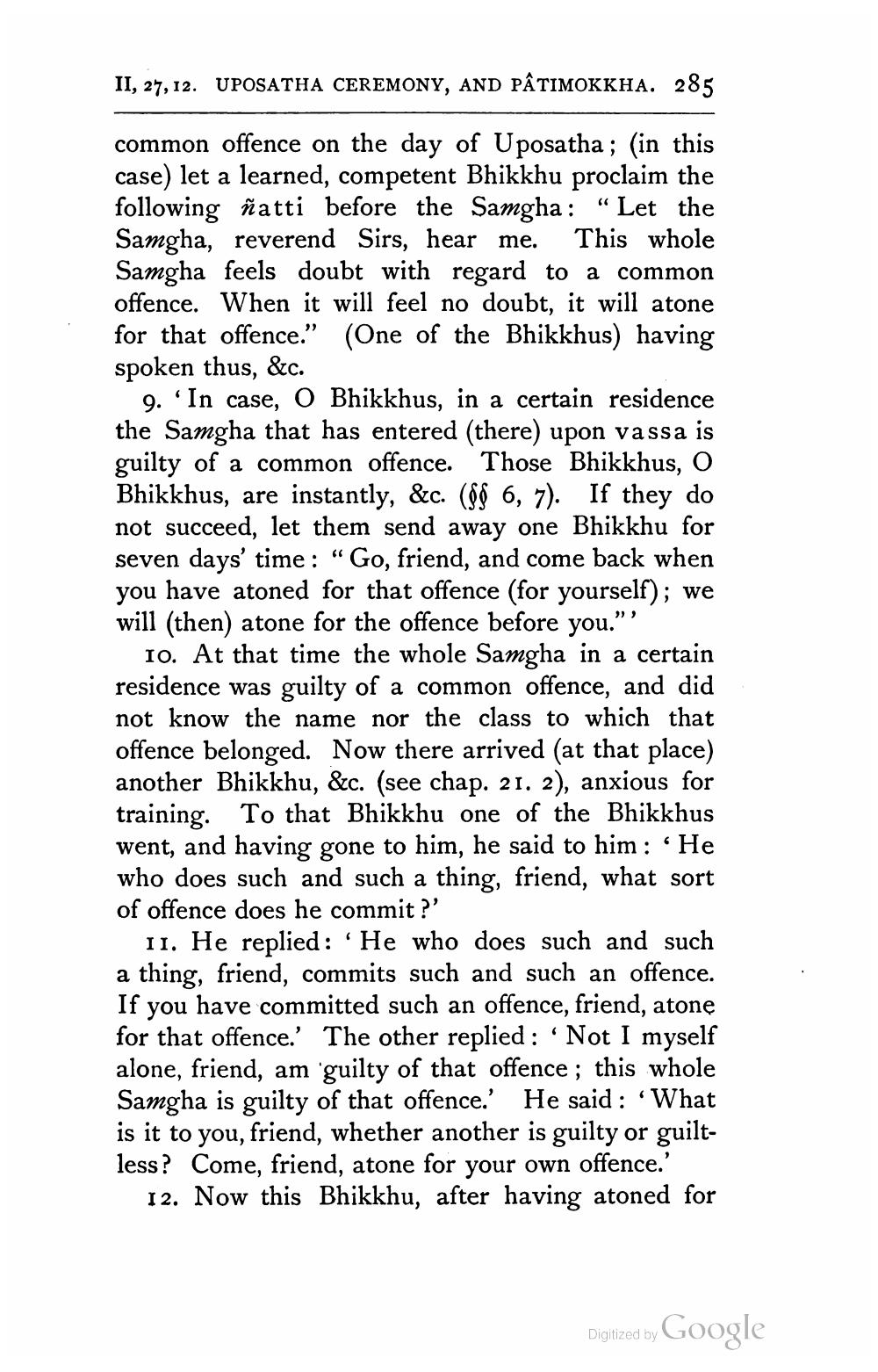________________
II, 27, 12. UPOSATHA CEREMONY, AND PÂTIMOKKHA. 285
common offence on the day of Uposatha; (in this case) let a learned, competent Bhikkhu proclaim the following ñatti before the Samgha: “Let the Samgha, reverend Sirs, hear me. This whole Samgha feels doubt with regard to a common offence. When it will feel no doubt, it will atone for that offence." (One of the Bhikkhus) having spoken thus, &c.
9. 'In case, O Bhikkhus, in a certain residence the Samgha that has entered (there) upon vassa is guilty of a common offence. Those Bhikkhus, O Bhikkhus, are instantly, &c. (8$ 6, 7). If they do not succeed, let them send away one Bhikkhu for seven days' time: “Go, friend, and come back when you have atoned for that offence (for yourself); we will (then) atone for the offence before you."
10. At that time the whole Samgha in a certain residence was guilty of a common offence, and did not know the name nor the class to which that offence belonged. Now there arrived (at that place) another Bhikkhu, &c. (see chap. 21. 2), anxious for training. To that Bhikkhu one of the Bhikkhus went, and having gone to him, he said to him : 'He who does such and such a thing, friend, what sort of offence does he commit?'
11. He replied: 'He who does such and such a thing, friend, commits such and such an offence. If you have committed such an offence, friend, atonę for that offence.' The other replied : 'Not I myself alone, friend, am guilty of that offence; this whole Samgha is guilty of that offence.' He said : What is it to you, friend, whether another is guilty or guiltless? Come, friend, atone for your own offence.'
12. Now this Bhikkhu, after having atoned for
Digitized by Google




